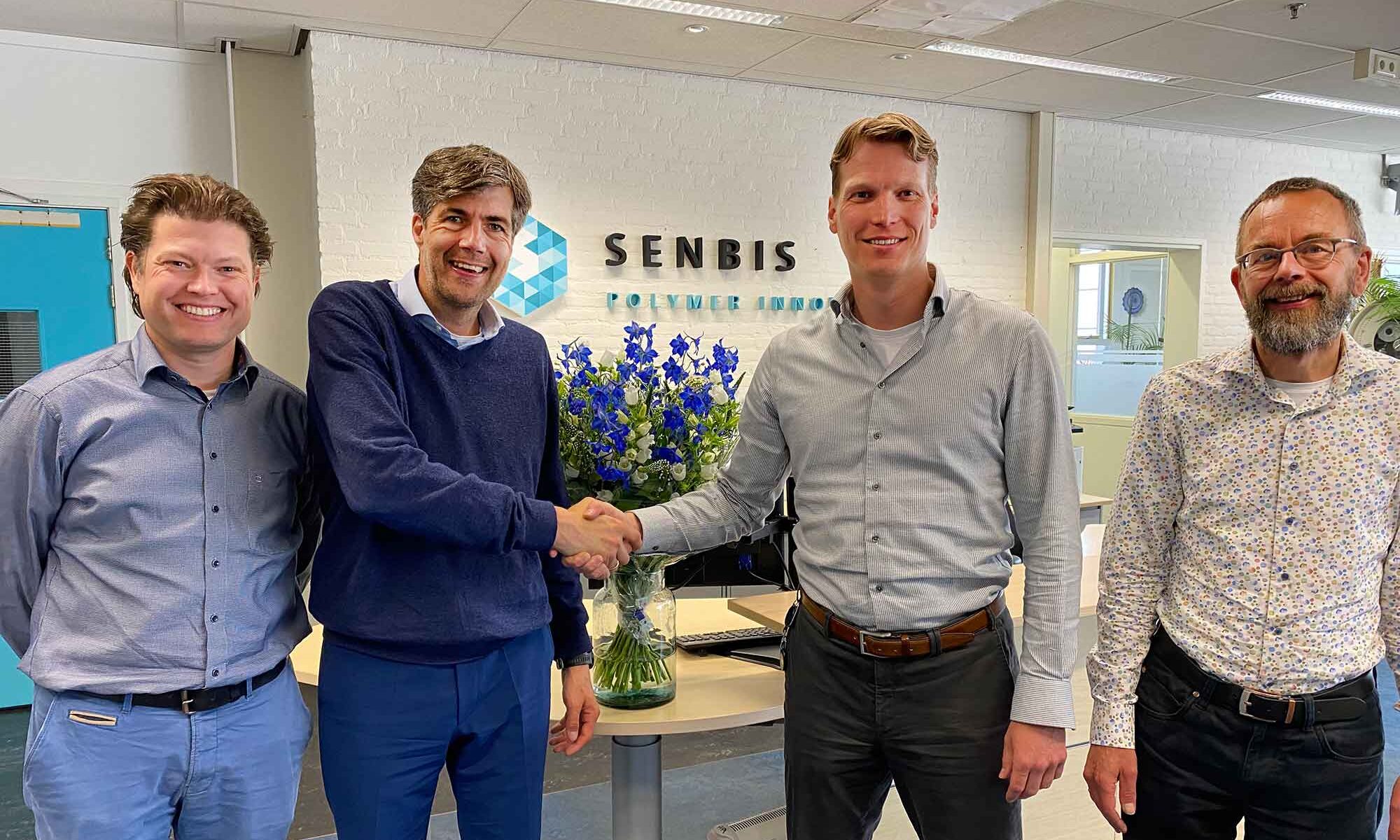For more than 10 years, Paques Biomaterials has been working on a new production chain in which bacteria in organic waste streams produce the PHA, branded Caleyda. It is biobased and readily biodegradable in all kinds of environments. It is made from waste streams and does not use genetically modified bacteria. It is therefore sustainable and natural in every way.
Chemistry and biotechnology
“With this collaboration, biotechnology and chemistry come together, which is a formula for success for a biopolymer like the one we want to make,” says Joost Paques, founder of Paques Biomaterials. “We are convinced that we will soon produce a high-quality alternative to fossil plastics that can be widely used and that will help us prevent the accumulation of microplastics in the environment.”
“We will help Paques Biomaterials develop different PHA grades suitable for a wide range of applications,” explains Gerard Nijhoving, managing director of Senbis. “We also see many opportunities for this material for so-called compounds. That means mixing the PHA with other biopolymers. For some applications, you actually need a mix of bioplastics to get the required mechanical properties and speed of biodegradability. Think of applications such as injection moulding, yarns, 3D printing or films. We see opportunities for new applications among our customer base and even within our own product development.”
Scaling up
The beginning of this new circular chain is already at an advanced stage. Recently, Paques Biomaterials signed a memorandum of understanding (MOU) with Kolon Industries and Kolon Global in South Korea, starting large-scale production of PHA from food waste.
Work is also under way in Europe on the first full-scale plants in which bacteria in industrial wastewater, sewage sludge and organic waste streams (vegetable/fruit waste) make PHA. In cooperation with five Dutch Water Boards and waste and energy company HVC, Paques Biomaterials has optimised this process with a demo plant in recent years. In the next stage of the chain, this biomass will be extracted and purified into the clean PHA biopolymer Caleyda.
For more information, see the websites of Senbis and Paques.



